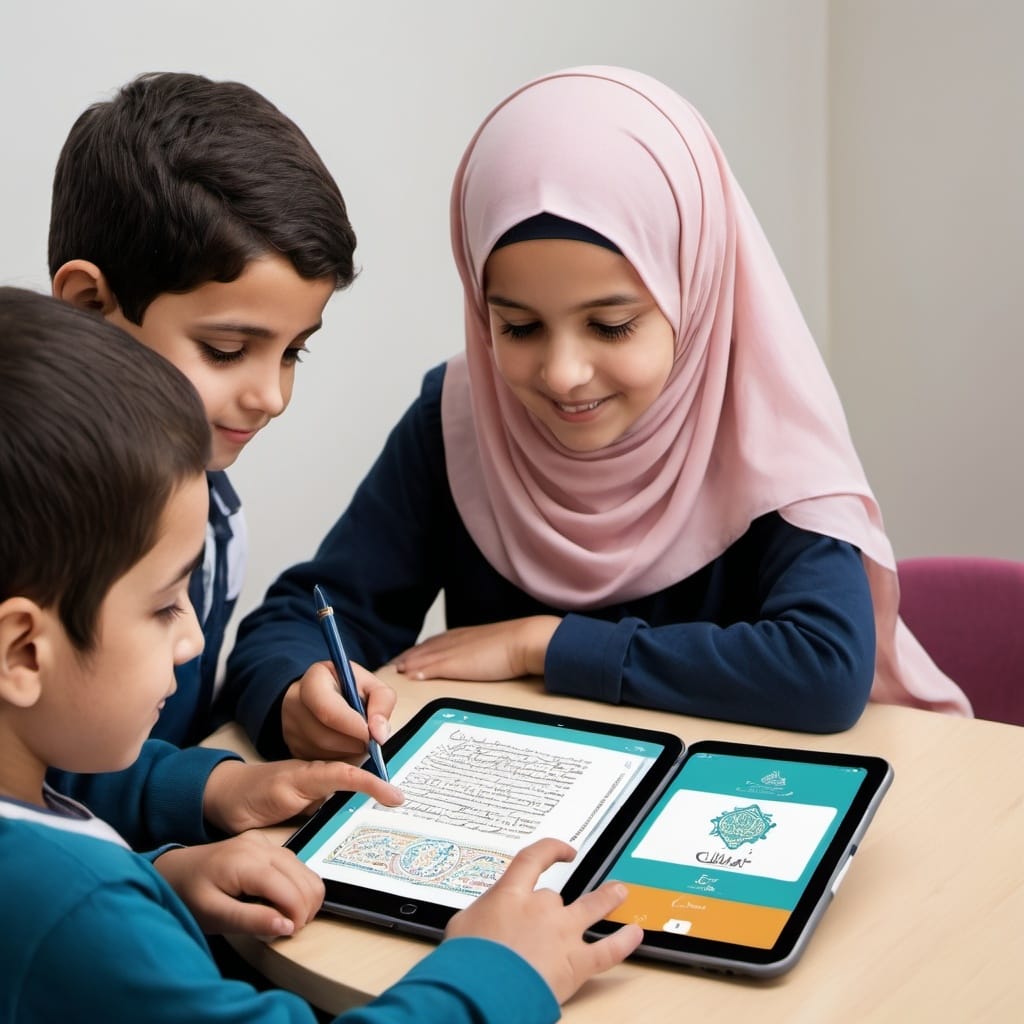Can You Listen to the Quran While Reading or Studying? Demystifying Multitasking with Faith
In the existence of a Muslim, Quranic recitation holds an area of paramount importance. It is not only a ritual however a profound spiritual exercise that connects one to the divine. However, the demands of modern lifestyles regularly lead to a juggling act wherein spiritual and worldly pursuits overlap.
One common query that arises in this context is whether or not it’s miles permissible and beneficial to listen to the Quran even as engaged in sports including reading a book or studying. In this blog post, we will explore this topic in depth, thinking about scholarly opinions, medical insights, and sensible tips to help you make an knowledgeable choice.

Can I Listen to the Quran While Reading or Studying?
Scholarly Opinions on Permissibility
The question of whether or not it’s far permissible to listen to the Quran at the same time as studying or reading has been addressed by way of several students. The consensus among many is that even as paying attention to the Quran is a tremendously endorsed act of worship, it need to be done with complete attention and respect. The Quran itself emphasizes the want for targeted listening in Surah Al-A’raf (7:204): “When the Quran is read, pay attention to it with interest, and hold your peace.” Scholars argue that multitasking can detract from the reverence and contemplation required in the course of Quranic recitation.
Benefits of Listening to the Quran
Listening to the Quran can have numerous religious and emotional advantages. It can create a serene environment, lessen pressure, and foster a experience of peace and connection to Allah. For individuals who may also locate it hard to allocate particular times completely for Quranic recitation, listening whilst engaged in different tasks can provide a manner to incorporate more Quran into their daily lives.
Drawbacks of Multitasking
On the flip side, multitasking can lessen the first-class of both activities. When you integrate Quranic recitation with reading or studying, you may discover that your comprehension and retention of each the Quran and your have a look at cloth suffer. The act of being attentive to the Quran requires a stage of mindfulness and attention that is tough to attain when your consciousness is split.
The Science Behind Listening and Learning
How the Brain Processes Information
The human brain is a complex organ able to processing more than one streams of facts simultaneously. However, it isn’t always optimized for real multitasking. Neuroscientific studies shows that what we regularly recall multitasking is certainly fast undertaking-switching, that could result in cognitive overload. When the brain is pressured to cut up its attention among paying attention to the Quran and studying a e-book, the efficiency and effectiveness of both sports are compromised.
Impacts of Multitasking on Learning
Studies have shown that multitasking can negatively impact mastering and reminiscence. For instance, while students try to have a look at whilst listening to song or other audio, their potential to keep and recognize records decreases. This is because the brain’s resources are being shared among disturbing tasks, main to decreased overall performance in both.
Balancing Spiritual and Academic Pursuits
Balancing the spiritual benefits of Quranic recitation with the realistic desires of analyzing calls for a strategic approach. Understanding the bounds of your cognitive potential can help you make a decision while and how to combine Quranic listening into your have a look at sessions without compromising either pursuit.
Practical Tips for Listening and Studying
Best Practices for Multitasking
If you choose to listen to the Quran whilst analyzing, some excellent practices let you optimize both sports:
- Choose Non-Demanding Study Tasks: Pair Quranic recitation with much less cognitively worrying obligations, along with reviewing notes or highlighting key factors.
- Use Breaks Wisely: Use observe breaks to listen to the Quran, permitting you to refresh your mind and spirit.
- Volume and Duration: Keep the quantity low and limit the length to keep away from cognitive overload.
Creating a Conducive Environment
Creating an surroundings that supports both listening and reading can enhance your productivity and non secular well-being:
- Dedicated Space: Set up a dedicated space for reading and taking note of the Quran. Ensure it’s miles loose from distractions.
- Scheduled Times: Allocate particular times for Quranic listening and analyzing. This will let you maintain consciousness and stability.
- Mindfulness Practices: Incorporate mindfulness practices, along with deep breathing or short meditation, to transition between activities smoothly.
Tools and Resources
Leverage gear and resources to aid your multitasking efforts:
- Quran Apps: Use Quran apps with capabilities like tafsir (exegesis) and translation to deepen your expertise while listening.
- Study Aids: Utilize examine aids like flashcards or precis notes to supplement your listening sessions.
- Headphones: Invest in good-satisfactory headphones to decorate your listening experience with out stressful others.
Common Misconceptions
Misunderstanding Reverence
A commonplace misconception is that being attentive to the Quran at the same time as engaged in other sports is inherently disrespectful. While it is actual that the Quran should be listened to with recognition and reverence, it is also important to recognize the sensible realities of contemporary existence. Balancing reverence with each day duties is an issue of purpose and mindfulness.
The Myth of Effective Multitasking
Another misconception is that multitasking is an effective manner to manipulate time. Research consistently shows that multitasking can lessen the first-class and effectiveness of each activities. Understanding this will assist you make extra informed choices approximately when and how to multitask.
Overestimating Cognitive Capacity
Many humans overestimate their capacity to multitask effectively. Recognizing that the mind has obstacles assist you to set practical expectations and avoid cognitive overload. This is mainly vital whilst undertaking activities that require deep recognition and comprehension, such as Quranic recitation and studying.
Testimonials and Sharing Experiences
Real-Life Experiences
To provide a balanced angle, we reached out to individuals who’ve mixed Quranic recitation with studying. Here are some of their experiences:
- Sara from the United Kingdom: “Listening to the Quran at the same time as studying has been a source of consolation for me. However, I noticed that my have a look at efficiency dropped when I attempted to tackle complex subjects. Now, I concentrate at some stage in breaks or whilst doing less traumatic obligations.”
- Ahmed from the us: “I tried paying attention to the Quran whilst analyzing my textbooks, however I found it hard to keep facts. I now dedicate separate instances for every pastime, and it has stepped forward both my spiritual and academic pastimes.”
- Aisha from Australia: “For me, taking note of the Quran creates a non violent environment that facilitates me recognition higher. I use it as a background throughout mild studying sessions, and it really works nicely for me.”
Balancing Act
Balancing spiritual practices with educational obligations is a not unusual venture. By sharing those stories, we purpose to offer realistic insights and encouragement for those navigating similar conditions.
Finding What Works for You
Ultimately, the key’s to discover what works excellent for you. Each person’s cognitive capacity and spiritual needs are particular. Experimenting with specific approaches and being mindful of your limits can help you strike the right balance.
Conclusion
In conclusion, the query of whether you could pay attention to the Quran while studying or studying is multifaceted. While it is permissible, it requires conscious consideration of both the religious and cognitive aspects concerned. Understanding the boundaries of multitasking, leveraging realistic hints, and locating a stability that works for you may assist you integrate Quranic recitation into your daily existence efficiently.
Remember, the goal is to enhance each your non secular and educational hobbies without compromising the best of either. If you would really like personalised guidance on balancing those aspects, consider reaching out to a knowledgeable pupil or joining a network of like-minded people for aid.
May your efforts be rewarded, and might you find peace and achievement in both your religious and educational journeys.
FAQs
1. Is it permissible to listen to the Quran even as analyzing?
Yes, it is permissible, but it’s far endorsed to pay attention with complete interest and reverence.
2. Can multitasking affect my learning?
Yes, multitasking can lessen the effectiveness and comprehension of each sports.
3. How can I create a conducive surroundings for listening and reading?
Set up a committed area, time table specific times, and incorporate mindfulness practices.
4. Are there any equipment to assist with multitasking?
Yes, Quran apps, take a look at aids, and accurate-pleasant headphones can beautify your experience.
5. What are the advantages of being attentive to the Quran whilst reading?
It can create a serene surroundings, reduce stress, and foster a sense of peace and connection to Allah.
6. Can multitasking be disrespectful to the Quran?
It depends at the purpose and mindfulness with that you approach it. Balance is key.
7. How can I stability religious and academic pursuits?
Experiment with special procedures, be aware of your limits, and locate what works exceptional for you.
8. Is multitasking an efficient way to manipulate time?
Research suggests that multitasking can reduce the great and effectiveness of both sports.
9. What are the drawbacks of taking note of the Quran at the same time as studying?
It can lessen the first-class of both sports and lead to cognitive overload.
10. Can being attentive to the Quran improve my consciousness?
Yes, it can create a non violent environment that complements focus at some stage in light reading classes.
11. How can I optimize my multitasking efforts?
Choose non-annoying look at duties, use breaks accurately, and hold the volume low.
12. What must I do if I locate multitasking hard?
Consider dedicating separate instances for Quranic listening and reading.
13. Can I listen to the Quran for the duration of mild analyzing periods?
Yes, it can work well for mild reading sessions that don’t require deep attention.
14. How can I keep away from cognitive overload?
Be aware of your cognitive ability and avoid forcing your brain to handle too much right away.
15. Are there any misconceptions approximately multitasking?
Yes, common misconceptions encompass overestimating cognitive potential and the effectiveness of multitasking.
16. Can taking note of the Quran reduce strain?
Yes, Quranic recitation can create a serene environment and reduce pressure.
17. What are the spiritual blessings of being attentive to the Quran?
It fosters a feel of peace and connection to Allah and complements spiritual well-being.
18. Can I use Quran apps to resource my multitasking efforts?
Yes, Quran apps with functions like tafsir and translation can deepen your information at the same time as listening.
19. How can I enhance my have a look at efficiency even as paying attention to the Quran?
Pair Quranic recitation with much less annoying duties and use look at breaks for listening.
20. What must I do if I have extra questions on balancing Quranic recitation and studying?
Consider achieving out to a informed pupil or joining a community of like-minded individuals for help.








